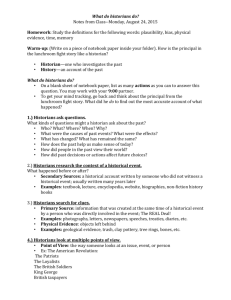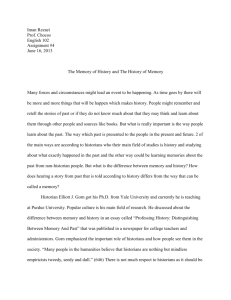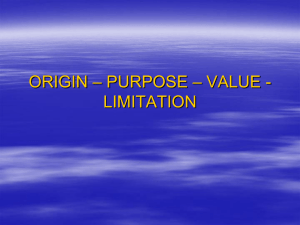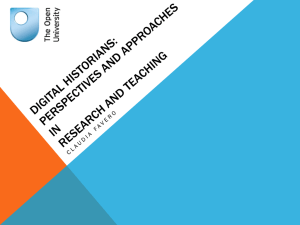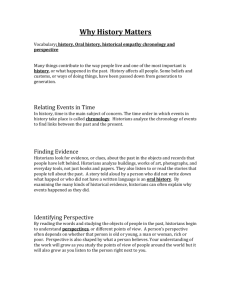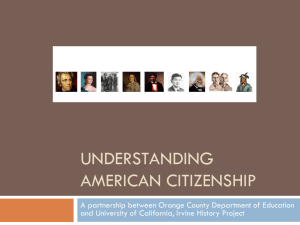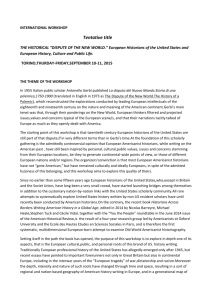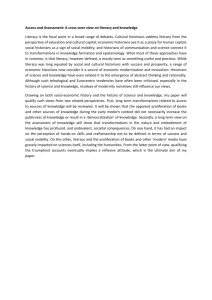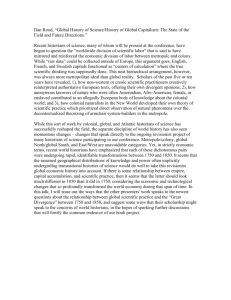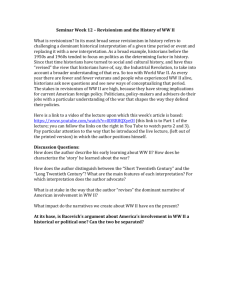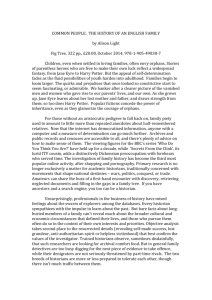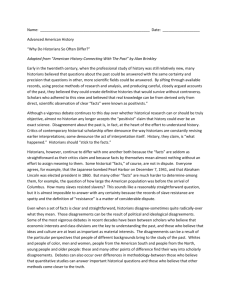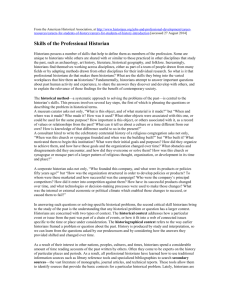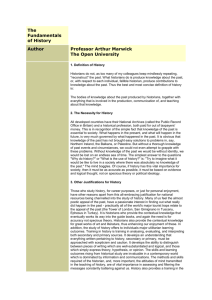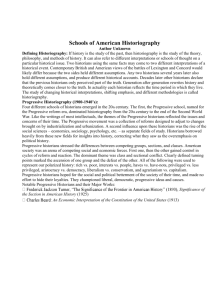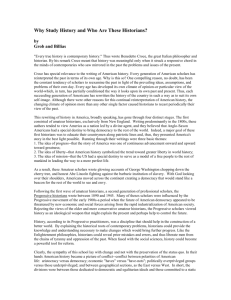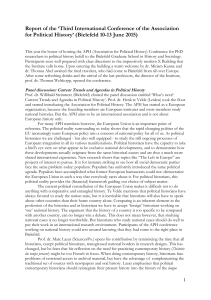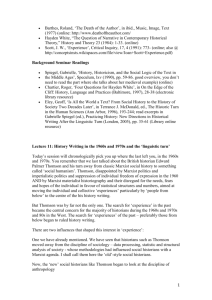Chapter 1, lesson 4 packet
advertisement
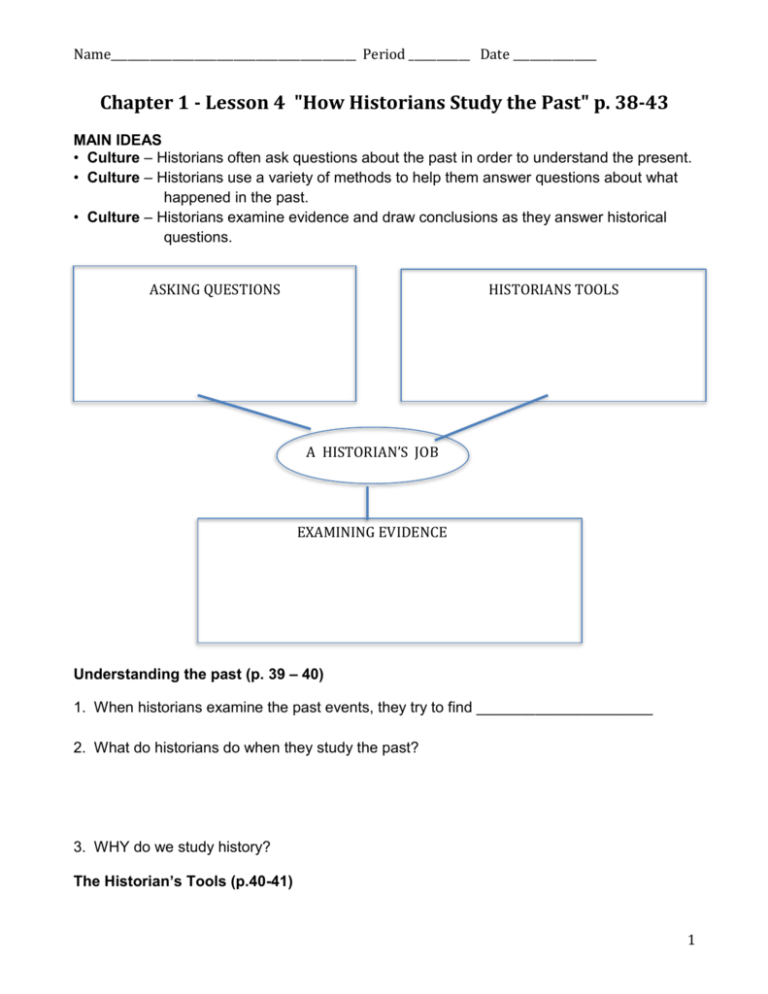
Name____________________________________________ Period ___________ Date _______________ Chapter 1 - Lesson 4 "How Historians Study the Past" p. 38-43 MAIN IDEAS • Culture – Historians often ask questions about the past in order to understand the present. • Culture – Historians use a variety of methods to help them answer questions about what happened in the past. • Culture – Historians examine evidence and draw conclusions as they answer historical questions. ASKING QUESTIONS - Ask the 5 W and 1 H questions: Who? What? Where? When? Why? How? Ex: how have groups interacted? HISTORIANS TOOLS - Primary Sources (letters, eye witness accounts, diaries) - Secondary Sources (paintings, books, photos - Oral history (stories, customs, songs) A HISTORIAN’S JOB EXAMINING EVIDENCE - evaluating sources - testing theories - Historians sift through all the information, choose what is most important and trustworthy as evidence Understanding the past (p. 39 – 40) 1. When historians examine the past events, they try to find _____________________ 2. What do historians do when they study the past? Possible answers: They ask questions. Look for causes / effects that explain WHY events happened. They look to see what happened to a society They learn about culture, religion, politics and economics 3. WHY do we study history? To learn about the past and how it affects us today. The Historian’s Tools (p.40-41) 1 Name____________________________________________ Period ___________ Date _______________ 4. Complete the chart below Type of source Primary Source Definition Something written or created by a person who witnessed a historical event. Secondary Source An account of a historical event written by someone who did not witness the event. Oral History An unwritten account of an event. Shared with others through speaking / talking. An example of this type of source - letters - photos - diaries - artifacts - eyewitness articles - videotapes - speeches Anything that based on a primary source or appears after an event - books - paintings - media reports - stories - family tales - customs - songs How Knowledge of the Past Changes (p.42-43) 5. Once historians find evidence, what do they have to “DO” with the evidence they find? - Answer questions - see what information is “important” and “trust worthy” - make conclusions 6. How are historians like detectives? They both have to sift through evidence and draw conclusions from it. Lesson Summary (p. 43) • Asking historical questions can help solve mysteries about the past. • A historian’s most important tools are primary sources, secondary sources and oral history • Examining evidence can lead to a new answer to a question or deepen a mystery. Why it matters now (p. 43) . . . The answers to historical questions can help people as they respond to today’s events and challenges. 2



